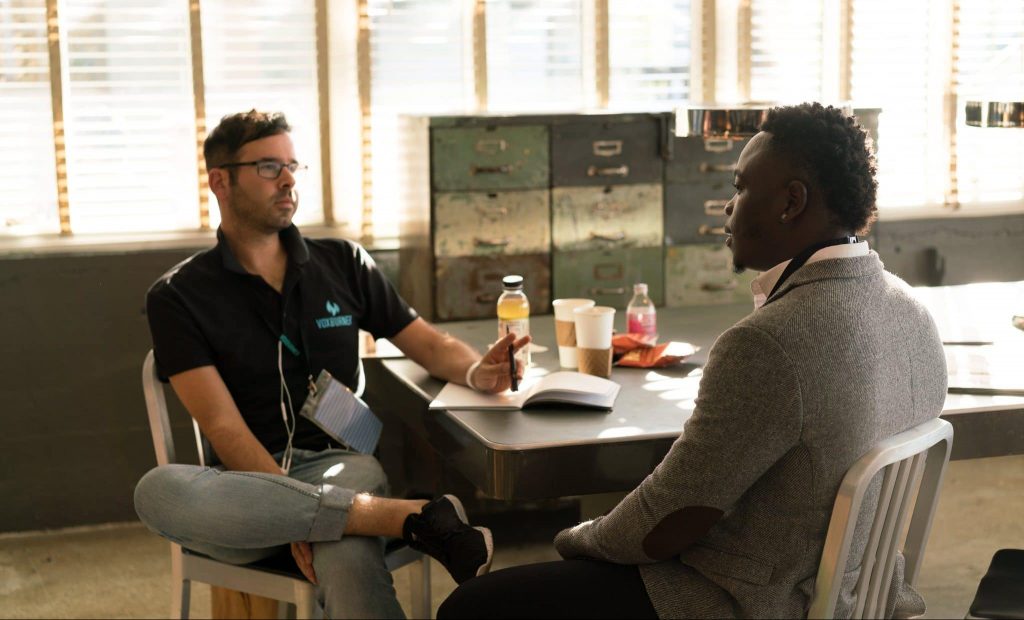Diversity in the workplace is a key area of focus for many hiring teams looking to leverage artificial intelligence for recruiting. Companies that have an inclusive workforce are known to perform better as ideas and cultures mix, leading to higher workplace satisfaction. There is also a growing recognition that diverse teams not only drive innovation but also foster a more inclusive workplace culture. The International Labour Organization says “High levels of equality, diversity and inclusion are associated with greater innovation, productivity and performance, talent recruitment and retention, and workforce well-being.”
But before access to smart interview tools, achieving a genuinely diverse workforce was a big challenge. Key reasons include historical biases and systemic barriers. However, with recruiting software that uses AI algorithms, CHROs are confident that building a diverse workforce is going to be more successful.
In this article, we explore the historical biases that caused roadblocks to inclusive hiring, present-day struggles with diversity hiring, and how using artificial intelligence for recruiting can be a sustainable solution through a use case.
We’ll also look ahead to the future, envisioning the transformative impact AI could have on reshaping the landscape of recruitment.
Historical Biases: The Leading Cause for Present-Day Challenges
Traditional recruitment processes were rifted with biases that encouraged inequalities within the workplace. Various sources were responsible for this unfortunate environment. Key reasons include societal norms, generational customs, and human judgement predicated by past teachings.
Image Source: Why Diversity Programs Fail by HBR
For example, take the 2004 study by the American Economic Association where researchers employed a “resume audit.” A group of resumes were sent to a set of employers. A random name was assigned to the top of the resume. At the end of the study, the findings showed that resumes with generally Black sounding names like “Jamal” or “Lakisha” got fewer interview requests compared to resumes that had a white name like “Greg” or “Emily” tagged on them.
This is just one example where traditional recruitment methods, such as resume screening and in-person interviews, tend to favour the majority party of a demographic. Over time, the traditional methods have led to the underrepresentation of women, minority groups, and individuals from diverse backgrounds.
Present-Day Challenges: Formalizing Diversity Without Fixing The Root Cause of Bias
There has no doubt been a concerted effort to promote diversity and inclusion in the workplace. Blind recruitment and diversity training have been introduced in many enterprises. However, even with a focus on smart recruiting techniques like online resume parsing, promotion of awareness, etc., there is still a gap in the inclusivity and diversity metric.
Biases, both conscious and unconscious, continue to trickle into various stages of the hiring process. For example, a comparison of the hiring in Google till 2021 showed that there has only been a decrease in disparity of a minuscule 4%. The gender and diversity gap is still wide.
Artificial Intelligence for Recruiting: Transforming the Landscape
Artificial Intelligence-powered tools that enable smart interviews or virtual AI interviews have the potential to be game-changers in the interview/hiring circle. They are able to skip the human bias factor by automating key areas of hiring like initial screening with a focus on experience and skill, rather than name or gender.
Tools that use artificial intelligence for recruiting also reduce human biases during the interviews and enhance the chances of selecting candidates solely based on their qualifications and potential.
Here are some advantages of AI in terms of inclusive hiring →
- Unbiased Resume Screening:
AI algorithms that are part of the smart interview process can be trained to scan resumes for qualifications and skills while keeping personal information aside. For example, a resume will be evaluated only on the basis of skills added, experience of the candidate and job fit.
Any details that may reveal the socio-economic background, name, gender, or ethnicity can be made to be omitted during the screening. The recruiter will therefore be able to meet candidates based purely on skill.
candidates.
- Structured Interviews:
AI-powered interview platforms will offer a standard operating procedure for interviewers in the hiring cycle. This means that there is little room for personal biases to creep into the picture.
JobTwine’s Smart Playbook Builder is a great example where diversity hiring is simplified by a smart interview tool. It eliminates interview bias by providing evaluators with a set of questions to evaluate competencies specific to the role. This ensures that candidates are judged fairly without unconscious bias. The playbook also creates a standard interview process that aids the process.
Additionally, sentiment analysis can gauge the candidate’s responses without being influenced by factors such as accent or communication style.
- Predictive Analytics:
AI models part of recruiting software can analyze a vast array of data points to identify patterns of success among employees. This data-driven approach increases the likelihood of a candidate’s fit within the company.
This means that biases that prevent the hiring of a candidate due to fear of the candidate not fitting into the company culture can be removed. With smart interview tools, hiring leaders will be able to make informed decisions based on data.
Looking Ahead: Building a Diverse Team With AI
As AI continues to evolve, the potential for it to drive diversity and inclusivity in the workforce is great. With the right data and the correct ethical norms set, artificial intelligence for recruiting can always ensure talent is placed above biases.
However, it is crucial to ensure that the right safeguards and data models are employed in the training of smart recruiting tools using AI. It is also important to remember that AI is a tool. Therefore, it will need human oversight to ensure that algorithms are doing what we know is morally right. It is a fine balance that needs to be trodden on.
But if done right, leveraging artificial intelligence in hiring and interview workflows will be a positive disruption in inclusive hiring that everyone can rally behind. Everything depends on the execution.



